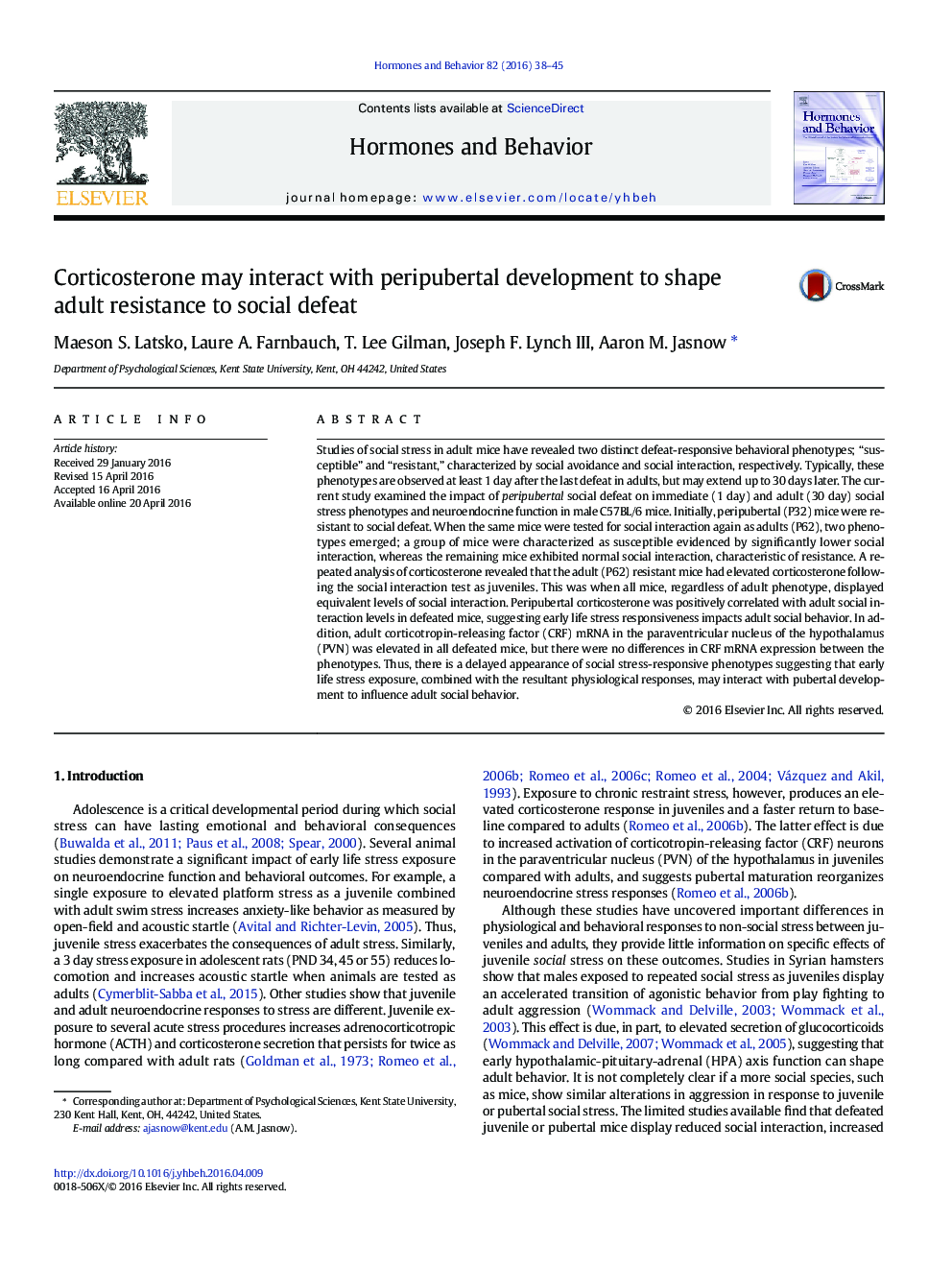| کد مقاله | کد نشریه | سال انتشار | مقاله انگلیسی | نسخه تمام متن |
|---|---|---|---|---|
| 322673 | 540194 | 2016 | 8 صفحه PDF | دانلود رایگان |
• Peripubertal social defeat causes a delayed emergence of social stress phenotypes.
• Peripubertal corticosterone is associated with adult resistance to social defeat.
• Peripubertal corticosterone may help shape adult social stress phenotypes.
Studies of social stress in adult mice have revealed two distinct defeat-responsive behavioral phenotypes; “susceptible” and “resistant,” characterized by social avoidance and social interaction, respectively. Typically, these phenotypes are observed at least 1 day after the last defeat in adults, but may extend up to 30 days later. The current study examined the impact of peripubertal social defeat on immediate (1 day) and adult (30 day) social stress phenotypes and neuroendocrine function in male C57BL/6 mice. Initially, peripubertal (P32) mice were resistant to social defeat. When the same mice were tested for social interaction again as adults (P62), two phenotypes emerged; a group of mice were characterized as susceptible evidenced by significantly lower social interaction, whereas the remaining mice exhibited normal social interaction, characteristic of resistance. A repeated analysis of corticosterone revealed that the adult (P62) resistant mice had elevated corticosterone following the social interaction test as juveniles. This was when all mice, regardless of adult phenotype, displayed equivalent levels of social interaction. Peripubertal corticosterone was positively correlated with adult social interaction levels in defeated mice, suggesting early life stress responsiveness impacts adult social behavior. In addition, adult corticotropin-releasing factor (CRF) mRNA in the paraventricular nucleus of the hypothalamus (PVN) was elevated in all defeated mice, but there were no differences in CRF mRNA expression between the phenotypes. Thus, there is a delayed appearance of social stress-responsive phenotypes suggesting that early life stress exposure, combined with the resultant physiological responses, may interact with pubertal development to influence adult social behavior.
Journal: Hormones and Behavior - Volume 82, June 2016, Pages 38–45
